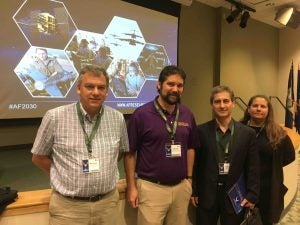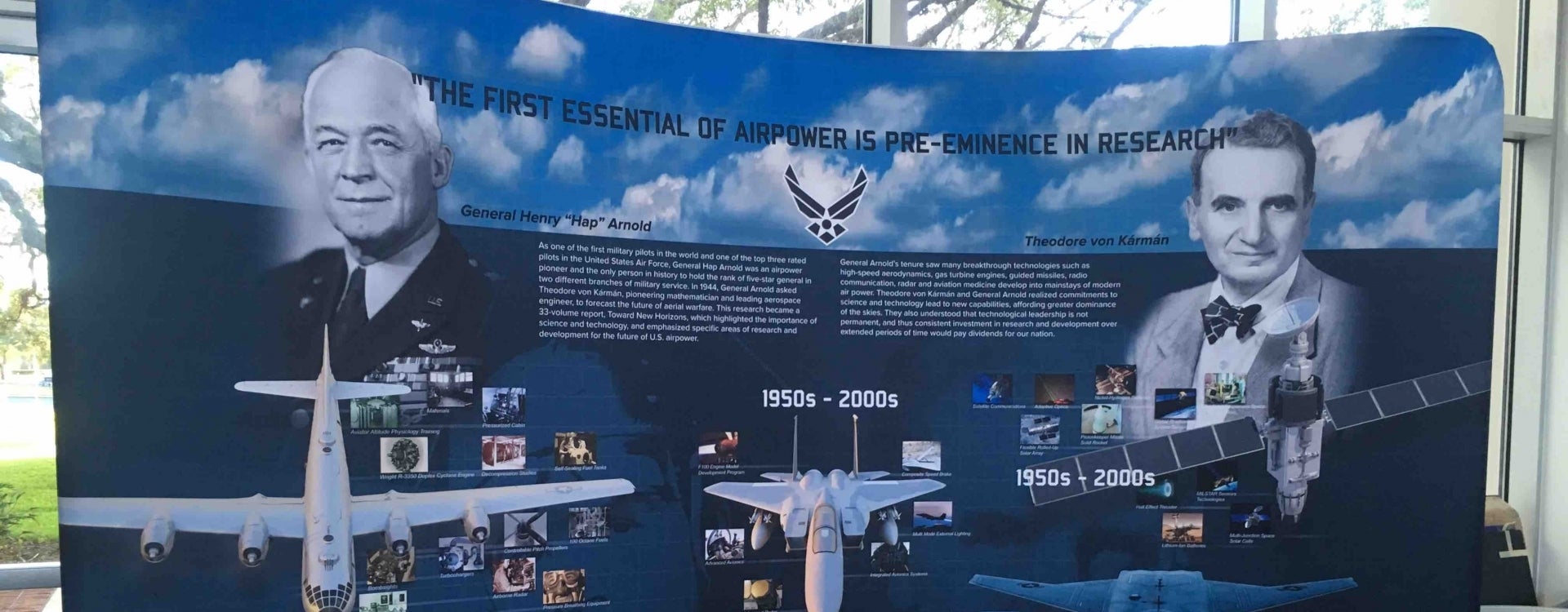Researchers Attend Air Force Workshop
Five East Carolina University researchers presented their projects at the U.S. Air Force Science and Technology 2030 Workshop in April.
The workshop, hosted by the University of South Florida, was tasked with pushing researchers to the “boundaries of what is possible in the areas of science and technology to defend America.”

A group of East Carolina University researchers including Nicholas Murray (from left), Zachary Domire, Kamran Sartipi and Teresa Ryan attended the U.S. Air Force Science and Technology 2030 Workshop in April to discuss new research topics relevant to the military branch.
ECU researchers attending the event and their research projects included:
- Yong-Qing Li, Department of Physics, “Laser tractor beam pulls small objects over a long-distance in air and space.”
- Nicholas Murray, Health and Human Performance, “Adaptive BCI Environments for Enhanced Training and Performance.”
- Kamran Sartipi, Department of Computer Science, “Global Integrated Intelligence, Surveillance, and Reconnaissance: Eyes and Ears on Adversaries.”
- Zachary Domire, Health and Human Performance, “Imaging biomarkers for identification of potential muscle injuries.”
- Teresa Ryan, Department of Engineering, “Acoustic detectability in the littoral environment has wide military applicability over any terrain.
“The workshop was quite interesting and informative for researchers in understanding real engineering and informatics problems to tackle,” said Sartipi, an assistant professor in the computer science department. “The Air Force deals with all sorts of science and technology problems, along with human aspects, in their projects. Working with the Air Force will result in high-quality research programs and will increase the research profile of the university.”
Workshop presentations revolved around the theme “Global Vigilance, Global Reach and Global Power for America.” Presentations topics included rapid global mobility, enhancing the performance of airmen and air, space and cyber superiority, among others. Each session consisted of five-minute presentations with opportunities to brainstorm with workshop participants. Participants were tasked with identifying new ideas relevant to Air Force missions.
“The new Air Force aircrafts are heavily dependent on information technology and utilize huge data from sensors, especially when communicating with ground systems with different mechanisms,” Sartipi said. “The Air Force is very interested in new advancements in information technology, system intelligence and cybersecurity that can help them ensure that it sustains its superiority over its adversaries.”
Sartipi’s project focused on what technologies are available, or could be created and utilized, to gather information, monitor adversaries and provide real-time knowledge to forces in combat. He suggests that big data analytics, fast data mining and machine-learning algorithms will provide valuable knowledge for the Air Force.
“Workshops such as these increase ECU faculty engagements with Department of Defense researchers,” said Jim Menke, director of military research and engagement. “Opportunities like these greatly increase the university’s potential for building future multidisciplinary and multi-institutional collaborations that support national defense research.”
ECU was voted a 2017 Military Times Best for Vets College and has been named a Military Friendly and Military Friendly Spouse School by MilitaryFriendly.com.
